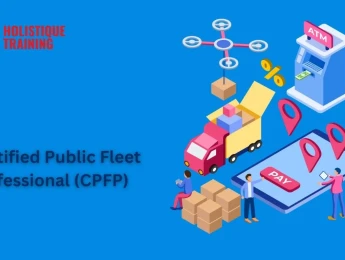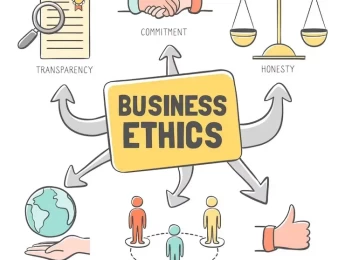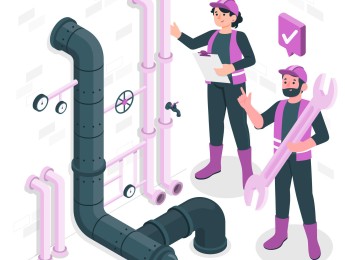Hospitals objectively play one of the most vital roles within healthcare, and in return, they require extensive and effective management to ensure all processes, services, and functions work as desired. One major contribution to hospital success is administration management. Administration focuses on all aspects of the hospital, including communications, finances, department monitoring, and record keeping.
Hospital administrators are responsible for the daily running of departments. They monitor patient flow, manage the use of beds and equipment, and approve diagnostic tests and treatments. This crucial role allows for maximum control of hospital equipment and guarantees that patients are seen as swiftly as possible and that there are minimal situations of excessive wait times.
Furthermore, administrators also manage the communications between departments and all relevant records and documents. These work hand in hand to ensure the patient receives the most appropriate care by providing direct lines of communication and keeping all records maintained, secure, and accessible to any healthcare provider who requires access to them.
Upon completion of this course, participants will be able to:
- Understand the vitality of effective hospital administration management.
- Describe the roles, responsibilities, and competencies of a hospital administrator.
- Serve as liaison between governing bodies, medical staff, and department managers.
- Coordinate and monitor healthcare services in alignment with the hospital board regulations.
- Monitor daily activities and provide reports detailing patient flow and services conducted.
- Authorise admissions and treatments as per hospital protocols, policies, and procedures.
- Ensure all necessary equipment is available at any given time.
- Manage patient in-take, the use of diagnostic services, inpatient beds, and other required facilities.
This course is designed for anyone within a hospital with administration responsibilities. It would be most beneficial for:
- Hospital Directors
- Hospital Administrators
- Healthcare Facilities Management
- Heads of Departments
- Healthcare Engineering Managers
- Pharmaceutical Directors
- Finance Managers
- Risks Analysts
This course uses a variety of adult learning styles to aid full understanding and comprehension. Participants will review case studies of established hospitals to highlight methods and systems of their administration that have contributed to success.
They will be given all the tools and equipment necessary to partake in the assortment of learning methods and exercises, which include seminars, group discussions, video materials and group activities. These exercises ensure that the participants are able to fully develop their knowledge and understanding of the taught content and all related practical skills.
Day 5 of each course is reserved for a Q&A session, which may occur off-site. For 10-day courses, this also applies to day 10
Section 1: Introduction to Administration Management
- Defining what hospital administration is and its necessity for the success of a hospital.
- Communicating with colleagues and patients using confident body language, professional tone of voice and language.
- Upholding high standards of personal presentation, etiquette, and dress code.
- Exploring the skills, responsibilities and competencies needed to be a successful hospital administrator.
Section 2: Handling Documents
- Understanding the purpose of all medical patient forms.
- Collecting patient in-take documents, diagnostic reports, and department activity reports to ensure full compliance with hospital board standards.
- Organising documents using electronic systems to increase accessibility to all necessary individuals throughout the hospital.
- Implementing physical and technical security measures to protect confidential patient documents.
Section 3: Communication Between Departments
- Acting as the prime communicator throughout all hospital departments.
- Ensuring all information and communications can easily travel between departments.
- Establishing systems and improving communication channels to improve communication efficiency to reduce potential patient harm.
- Understanding the potential influences that may impact the effectiveness of communications and implementing measures to correct these.
Section 4: Managing Finances
- Investigating each individual department’s income and outgoing costs.
- Analysing costs utilising various methods to identify areas of significant waste and strategise ideas to reduce it.
- Conducting risk assessments to explore areas of high financial risk and implement preventative measures to reduce risk probability.
- Improving service utilisation by adjusting budgets from department to department based on necessity and patient demand.
Section 5: Monitoring Department Activities
- Managing the occupation of rooms, beds, staff, and equipment to ensure maximum effective utilisation.
- Analysing the use of necessary and luxury resources and ensuring a constant stock of necessities.
- Overseeing the recruitment and training of new employees to comprehend how to best delegate them to tasks and projects.
- Investigating the evolving demand for patient care and searching for innovative ideas and technologies to help meet these.
Upon successful completion of this training course, delegates will be awarded a Holistique Training Certificate of Completion. For those who attend and complete the online training course, a Holistique Training e-Certificate will be provided.
Holistique Training Certificates are accredited by the British Assessment Council (BAC) and The CPD Certification Service (CPD), and are certified under ISO 9001, ISO 21001, and ISO 29993 standards.
CPD credits for this course are granted by our Certificates and will be reflected on the Holistique Training Certificate of Completion. In accordance with the standards of The CPD Certification Service, one CPD credit is awarded per hour of course attendance. A maximum of 50 CPD credits can be claimed for any single course we currently offer.
- Course Code IND05-125
- Course Format Classroom, Online,
- Duration 5 days














